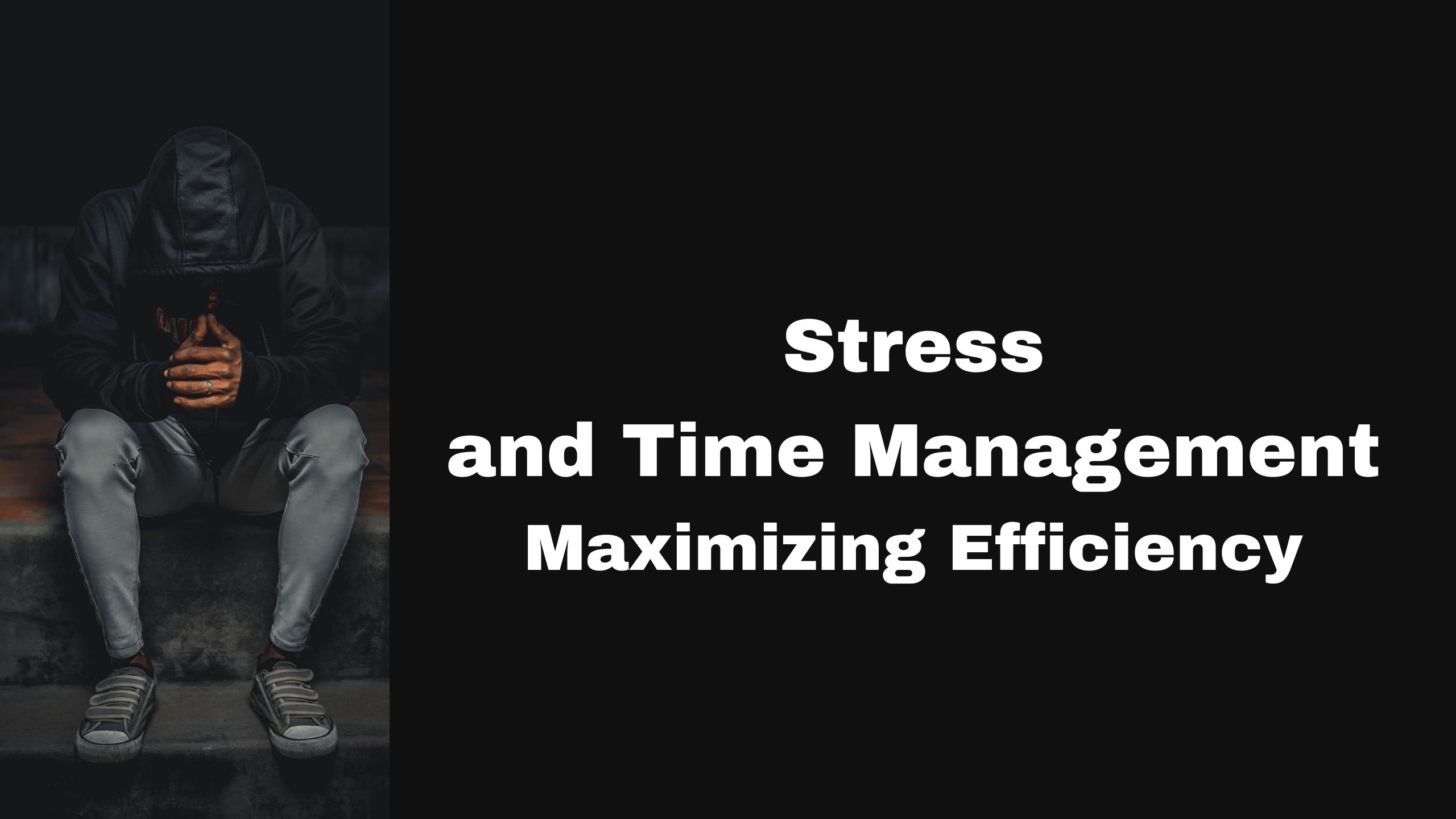Stress and Time Management: Maximizing Efficiency
In today’s fast-paced world, the demands of work, personal life, and other responsibilities can lead to high levels of stress. One effective way to combat stress is through efficient time management.
Learning to prioritize tasks, set goals, and make the most of your time can reduce stress and increase productivity. In this article, we will explore the relationship between stress and time management and provide practical tips for maximizing efficiency in your daily life.
The Stress-Time Management Connection
Stress often arises from feeling overwhelmed by an excessive workload or the perception that there’s not enough time to meet your obligations. Effective time management can alleviate these stressors in several ways:
Reduced Procrastination: Proper time management helps you tackle tasks promptly, reducing the stress associated with procrastination and looming deadlines.
Increased Control: By managing your time effectively, you gain a greater sense of control over your life and responsibilities, which can reduce feelings of helplessness and stress.
Enhanced Productivity: Using your time efficiently allows you to accomplish more in less time, reducing stress associated with an ever-growing to-do list.
Improved Work-Life Balance: Time management can help you allocate more time to personal life, relaxation, and self-care, reducing the overall stress load.
Strategies for Maximizing Efficiency through Time Management
Set Clear Goals: Establish clear, specific, and achievable goals for both short-term and long-term tasks. This helps you stay focused and prioritize effectively.
Prioritize Tasks: Use methods like the Eisenhower Matrix, which categorizes tasks into urgent, important, non-urgent, and non-important, to prioritize your to-do list.
Plan Your Day: Start each day by creating a detailed plan or to-do list. Allocate time slots for each task, ensuring that important and time-sensitive tasks are addressed first.
Avoid Multitasking: While it may seem efficient, multitasking often leads to reduced focus and productivity. Concentrate on one task at a time to complete it more effectively.
Use Time Blocks: Dedicate specific time blocks to specific tasks or categories of work. For example, allocate a block for email communication and another for project work.
Set Boundaries: Establish clear boundaries by allocating specific work hours and respecting personal time. Communicate these boundaries to colleagues and family members.
Limit Distractions: Identify and eliminate common distractions, such as turning off non-essential notifications, silencing your phone during focused work periods, and creating a clutter-free workspace.
Delegate Tasks: If possible, delegate tasks that others can handle effectively, freeing up your time for higher-priority responsibilities.
Take Breaks: Regular breaks can improve focus and productivity. Use techniques like the Pomodoro Technique, which involves working for 25 minutes and then taking a 5-minute break.
Reflect and Adjust: Periodically review your time management strategies to identify areas for improvement. Adjust your approach as needed to maximize efficiency.
Conclusion
Stress is a common response to the challenges and demands of modern life. However, by mastering the art of time management, you can reduce stress, enhance productivity, and regain control over your daily routine. Setting clear goals, prioritizing tasks, eliminating distractions, and respecting boundaries are all essential components of effective time management.
Remember that time management is a skill that can be developed and refined over time. It requires patience and consistent effort. By implementing these strategies, you can maximize efficiency, reduce stress, and achieve a healthier work-life balance.

